fakenews
Latest
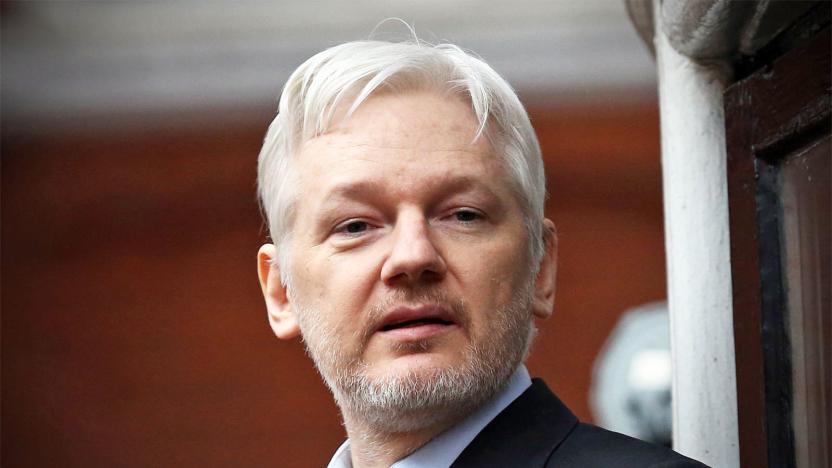
Julian Assange 'happy' about the rise of fake news
Wikileaks founder Julian Assange is taking time out from hiding in the Ecuadorian embassy in London to sing the praises of fake news. He appeared via satellite at a Q&A in Sydney, Australia this weekend, where he defended his organization and painted the traditional press as "opportunistic snipers" who publish "weaponized text."
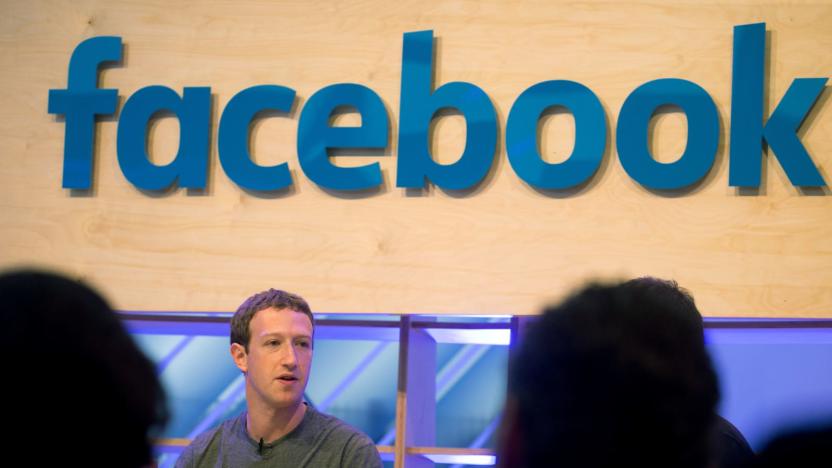
Facebook says it can't police all posts for racism
Facebook has a lot of control over what you see in your social feed, but it can't control everything... at least, according to its lawyer. While defending against a German lawsuit over misuse of photos in fake news, the company's attorney said it wasn't possible for Facebook to watch for racist language in every post. There are "billions" of posts every day, Facebook claims, and it would require a "wonder machine" to catch every possible instance of abuse.
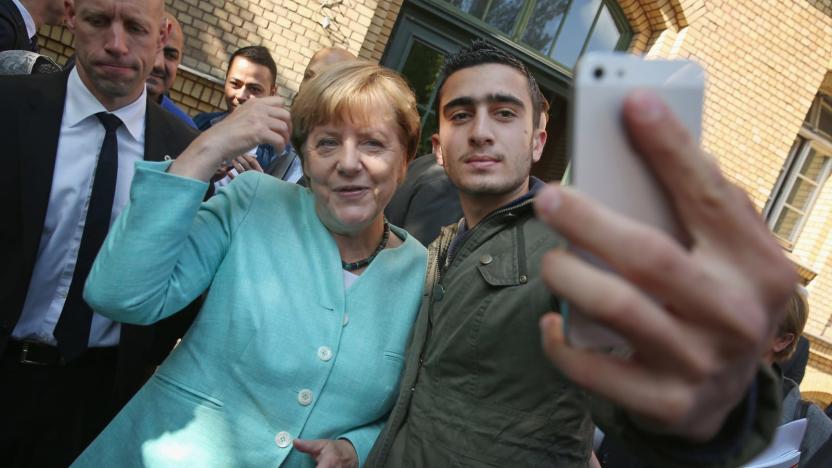
Syrian refugee sues Facebook over fake news photos
See the heartwarming moment above? That's Syrian refugee Anas Modamani taking a selfie with German Chancellor Angela Merkel as he starts a new life in the country. However, it also caused Modamani no end of grief -- fake news stories on terrorism have routinely used the photo he took, falsely connecting him to horrible attacks. And he doesn't think enough is being done to stop it. Modamani is suing Facebook to have it delete all fake news stories using his image. He did have success getting Facebook to take down some stories beforehand, but he says it hasn't been enough -- Facebook would frequently say that a photo met its standards.
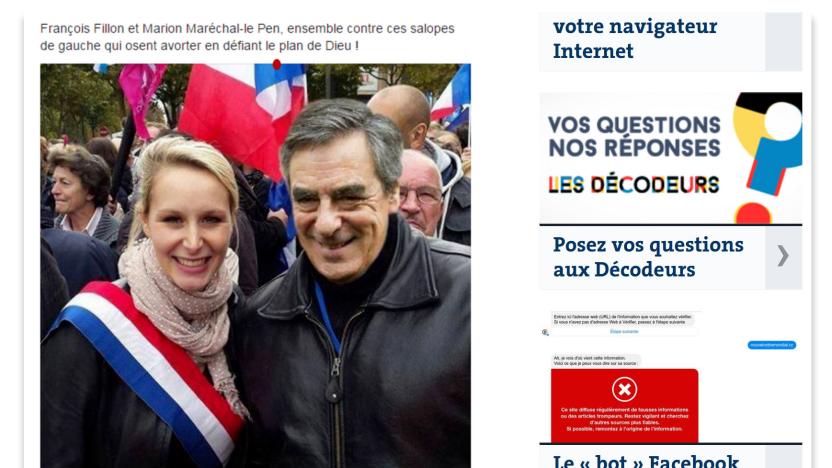
Facebook and Google tackle fake news ahead of French elections
Fake news on Facebook and Google reached millions of people during US elections, and France wants to make sure its own presidential contests aren't disrupted. Compounding the risk, a lot of fake US news reportedly came from Russia, and Marine Le Pen's far right National Front party is funded by Russian banks friendly with Vladimir Putin. As such, Facebook has teamed with eight major news organizations including Agence France Presse (AFP), LeMonde and Les Echos to curb false information during France's April elections.
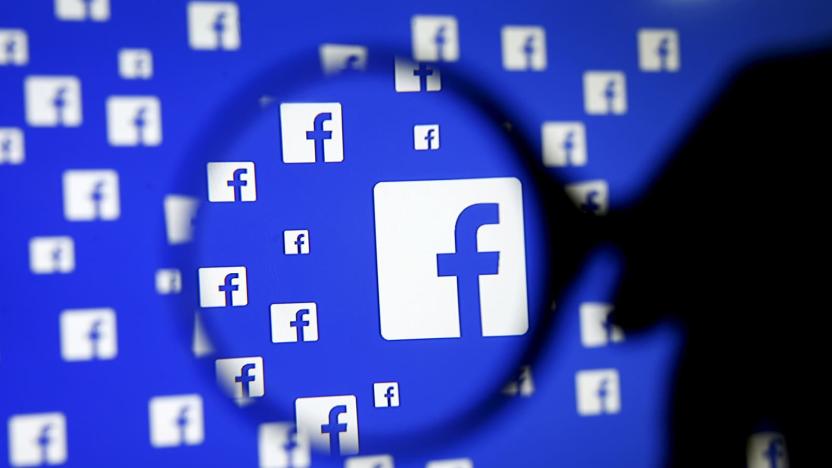
Facebook tweaks the feed to bury fake news and clickbait
Just how much fake news trending all over Facebook actually influenced the election is still up for debate, but the question pushed the social media company into crackdown mode. In the last few months, it cut off ad funding for dubious posts and added a button to let users flag questionable content for review by third-party fact-checkers. To more actively combat shady stories, the social media giant is tweaking its News Feed algorithm to promote more legitimate and viral content.

UK MPs launch inquiry into the impact of 'fake news'
What is fake news? That's a question that Facebook has been trying to answer for months, but it's now becoming the subject of a UK parliamentary inquiry. The House of Commons Culture, Media and Sport Committee confirmed today that it will launch an investigation into the "growing phenomenon" of fake news in a bid to define exactly what it is, who is impacted by it and the threat it poses to democracy.

Google took down nearly 2 billion 'bad ads' in 2016
Sketchy advertisers are all over the internet, and Google is doing everything it can to stop them from scamming users. According to a recent report on the matter, the search giant removed 1.7 billion ads from its advertising platform in 2016, more than double the amount compared to the year prior. The online housekeeping included 68 million ads for illegal pharmaceutical products, 80 million for content that misled and deceived consumers, as well as 112 million others that used trick-to-click methods.
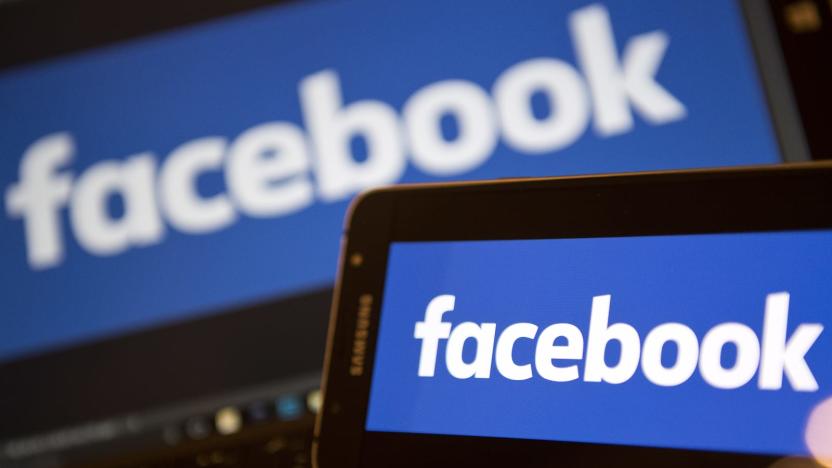
Facebook tests fake news filtering outside of the US
Facebook's tools for fighting fake news are about to get their first test run outside of the US... and they might just prove vital. The company has confirmed to the Financial Times that it'll trial its new filtering tools in Germany in the "coming weeks," addressing the country's concerns that bogus stories could influence its upcoming federal election. As in the States, users can report stories as fake, which sends them to a third-party fact-checker. If a story is deemed false, Facebook will flag it, decline to prioritize it and warn users who want to share it.

Recommended Reading: The Wii U wasn't for everyone
The Wii U Was Great, Just Not For Me Luke Plunkett, Kotaku Before Nintendo revealed all the details about its upcoming Switch console, a lot of us took a moment to reflect on its predecessor: the Wii U. While the console offered compelling gamine experiences for some, it wasn't for everyone. Kotaku discusses just that, including its appeal among younger players.

The Engadget Podcast Ep 24: The Biggest Lie
Senior editors Edgar Alvarez and Devindra Hardawar join host Terrence O'Brien to discuss the biggest stories of the week, including Facebook's Journalism Project and the Emoji takeover of Monopoly. Then they'll talk about Volkswagen's massive settlement and pending indictments. Plus they'll try to recap Dieselgate without messing up the timeline.

Facebook's fix for journalism involves digests and subscriptions
Facebook's efforts to mend fences with journalists just got a formal name. The social network just launched the Facebook Journalism Project, an initiative meant to "establish stronger ties" with the news world. The program will have it working with journalists on new business models, offering journo-friendly tools and encouraging everyone to both read critically and fight fake news.
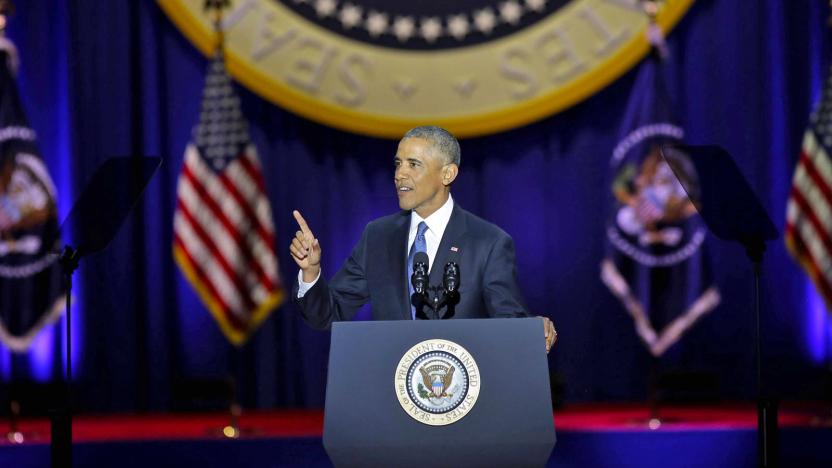
Obama talks social media and climate change in final address
During his farewell address President Obama tackled many different issues, from the importance of our democratic institutions and the lingering effects of racism. But he also took a few moments to briefly address the economic, environmental and technical challenges facing Americans of all stripes.
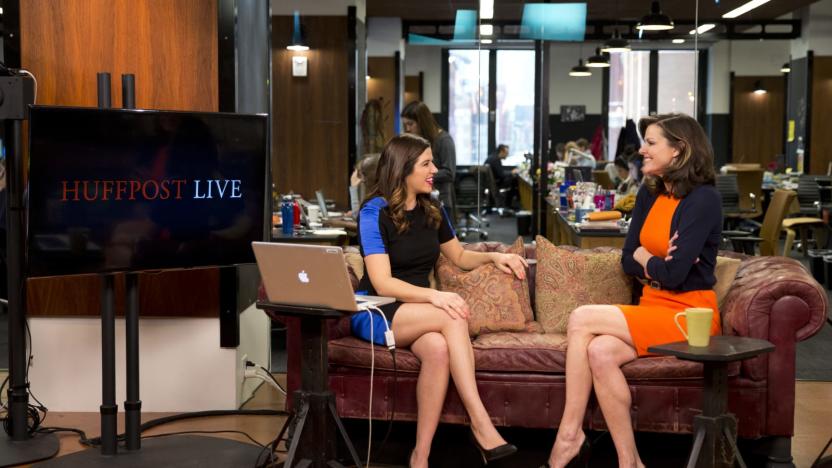
Facebook hires ex-NBC anchor to head news partnerships team
Facebook has hired former CNN and NBC anchor Campbell Brown to head its news partnerships department and help it deal with a spate of recent problems around its news feed. In the newly-created position, Brown will "help news organizations and journalists work more closely and more effectively with Facebook," she wrote on her Facebook page. The social network no doubt helps she can help deal with fake news, strained relations with media companies and other issues.
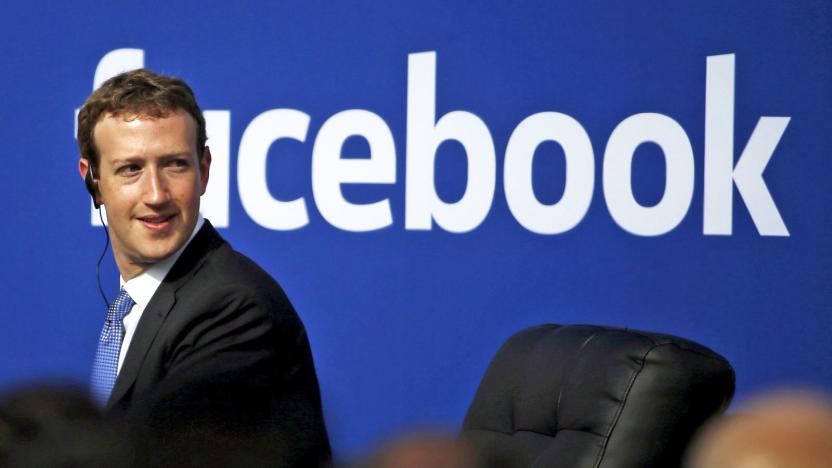
Zuckerberg plans to tour all 50 states to meet Facebook users
Given how often Facebook was in the news last year (and very rarely for anything positive), its commander in chief Mark Zuckerberg has a pledge for 2017: Mix it up with commoners. In a post on the social network, Zuckerberg says that his personal goal for 2017 is to "have visited and met people in every state in the US" by year's end. By his count, he has 30 states left. Man, he travels fast.
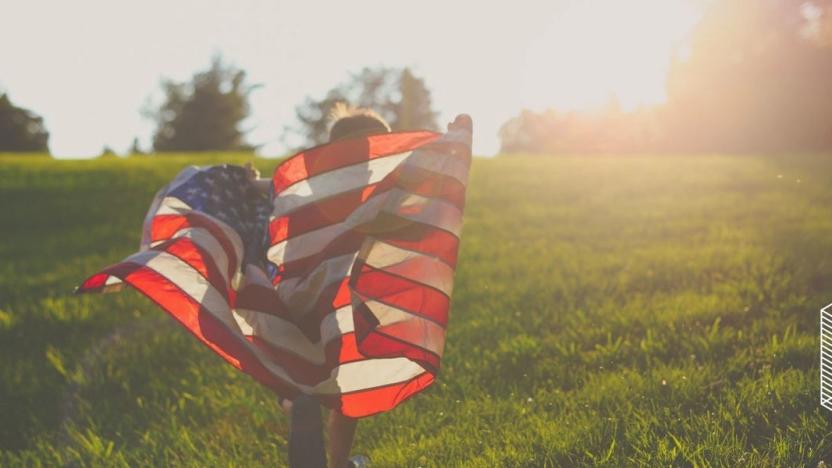
The year's biggest loser was the American public
Even if we judge 2016 purely on the musical legends it stole from us, it would be an awful one. The truth is, this year has been rough by any standard. Our social networks, ostensibly designed to connect us, led us to turn on one another. Incidents of harassment and abuse came to define Twitter. Our already bitter and destructive discourse dissolved even further in the midst of a divisive election season. Meanwhile Facebook was flooded with an alarming number of fake news stories. And if that wasn't enough, we were constantly reminded that none of us are safe from the seemingly endless barrage of hackers. Yep, this year the American public lost, big league.

Facebook Safety Check erroneously says a bomb exploded in Bangkok (updated)
Facebook's Safety Check program incorrectly said there was an explosion in Bangkok, Thailand, The Independent reported. For an hour beginning at 9PM local time on December 27th, anyone in Thailand's capital city saw reports of an explosion and a prompt to mark themselves as safe. However, there was no actual bomb explosion in Bangkok tonight.

Fake news starts an Israel-Pakistan Twitter dispute
There's no question that fake online news can have dire consequences, but it's now clear that this is true even on an international scale. After a false story claimed that Israel was threatening to nuke Pakistan if it sent troops into Syria, Pakistan Defense Minister Khawaja M. Asif warned Israel that his country could retaliate with nuclear weapons if necessary. He later backtracked by saying that Pakistan was peaceful and had nukes solely as a "deterrence to protect our freedom," but only after Israel's Ministry of Defense noted that the offending statement (attributed to former Defense Minister Moshe Yaalon) didn't exist.

The biggest losers of 2016
Last week we broke down the biggest winners of 2016. This week, we're taking a look at the biggest losers. Yahoo has clearly had one of the worst years in history for a company. And, unless something changes soon, this whole mess with the NSA and 1.5 billion hacked accounts could become the problem of Engadget's parent company Verizon. So, there's that. Of course there was Samsung's parade of exploding gadgets and Twitter... well, Twitter just couldn't seem to get its act together. It's now known as the platform of choice for trolls and white supremacists as much as it is for forcing you to distill complex thoughts into 140-character fragments. Of course, between the explosion of fake news and the continued hostility towards the science of climate change, the biggest loser of 2016, might just be the American public. Check out all of Engadget's year-in-review coverage right here.

Hoaxy visualizes how fake news spreads across social media
We're at the point where the proliferation of fake news online has had extreme offline consequences. While Google has poured funds into battling misinformation and Facebook has asked its users to rate headlines for truthfulness, Indiana University is going about things a different way. Hoaxy, a project from IU's Center for Complex Networks and System Research, is a search engine that tracks the spread of fake news stories, visually.

Fake news could cost Facebook dearly in Germany
Fake news and hate speech are sadly unavoidable on social media, but that might change soon... in Germany, anyway. Late last week, Thomas Oppermann — chairman of the German Social Democratic Party — proposed a stringent law meant to hold companies like Facebook responsible when fake news makes the rounds. As reported by Der Spiegel (and translated by Deusche Well), Oppermann's plan would require Facebook to actively combat fake news all day, everyday. Here's the fascinating bit: if a fake news item pops up and Facebook can't address it within 24 hours, it would be subject to a €500,000 (or $522,575) for each post left untouched.










